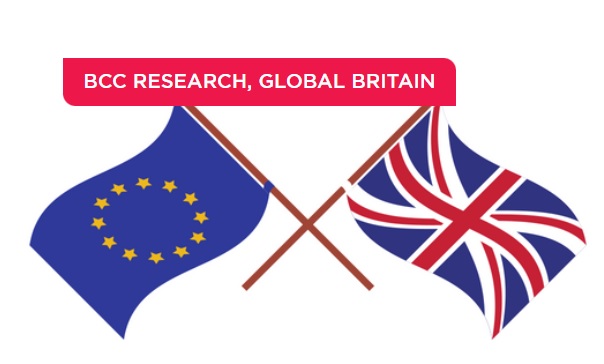
The BCC has met with Ambassadors from across the EU to make the case for a trade relations reset that benefits businesses on both sides.
Director General, Shevaun Haviland, and Head of Trade Policy, William Bain, were hosted, this afternoon, at the German Embassy by Ambassador, Miguel Berger.
They were joined by the EU Mission and representatives from 16 other EU countries to review the BCC’s analysis and recommendations on the Trade and Co-operation Agreement (TCA).
The TCA sets out the rules for trade between the UK and the EU after Brexit.
It allows tariff-free trade with the EU but requires British and EU firms to produce documentation and paperwork for all shipments. Services access is also limited by rules on business mobility.
BCC Analysis of the TCA on the fourth anniversary of its introduction found that:
- Two fifths (41%) of UK exporters disagree the Brexit deal is helping them grow sales.
- Only 14% of UK exporters think the deal is helping them to grow.
- Almost half (46%) of UK businesses want the Government to make it easier for their staff to work in the EU.
- More than a third (37%) want a reduction in VAT requirements to export to the EU.
- And a quarter (25%) want the UK to align with rules and regulations with the EU in key goods sectors.
Companies say the biggest barriers to exporting to the EU are customs procedures and documentation (45%), export documentation (39%), regulations and standards (35%) and tariffs (33%).
Awareness of upcoming changes in trade rules and regulations being made by either the UK or the EU are also alarmingly low, with more than three quarters of firms knowing no details of much of the legislation.
After meeting with the Ambassadors, Trade Policy Head, William Bain, said: “The shockwaves from last week’s US announcements on tariffs are still reverberating around the world, and both the UK and EU need to decide on their next steps.
“Making trade between the UK and the EU easier, for businesses on both sides of the English Channel, is one option that can have an immediate impact.
“If we reduce red-tape and simplify other processes that have added to costs for business then we all benefit.
“The EU Leaders’ Summit with the Prime Minister won’t take place until May 19, and clearly a lot will happen in the next few months, but it was encouraging to see EU ambassadors being receptive to our suggestions.”
The BCC’s TCA Four Years On report sets out 26 recommendations to improve UK-EU trade.
Among its top proposals for discussions in 2025 are:
1. Negotiate a deal with the EU which either eliminates or reduces the complexity of exporting food for SMEs.
2. Produce a balanced Youth Mobility scheme between the UK and EU, covering school visits and exchanges, and a time-limited ability to work for young people.
3. Rejoin the Pan-Euro-Mediterranean (PEM) convention to align rules on raw material and components that can be used in exports without incurring tariffs.
4. Establish a supplementary deal, like Norway’s, that exempts smaller firms from the requirement to have a fiscal representative for VAT in the EU.
5. Make a deal to allow UK firms to travel and work for longer in Europe and vice versa, and provide mutual recognition of professional qualifications.
6. Link the Emissions Trading Schemes of the UK and EU to avoid charges on carbon embedded in exports in both directions.

